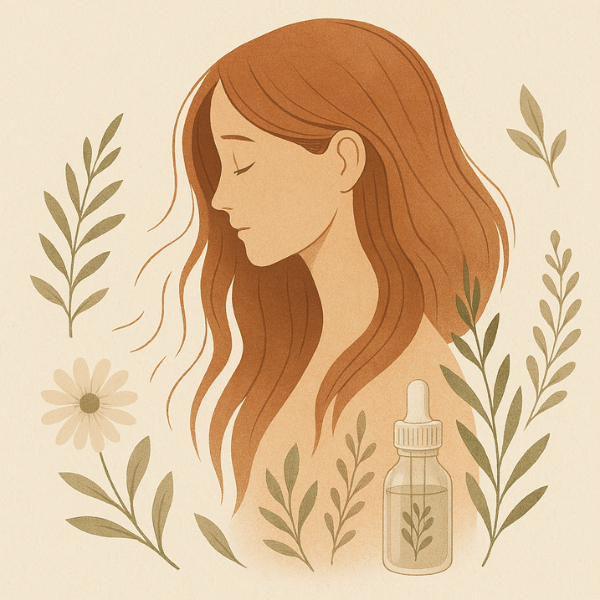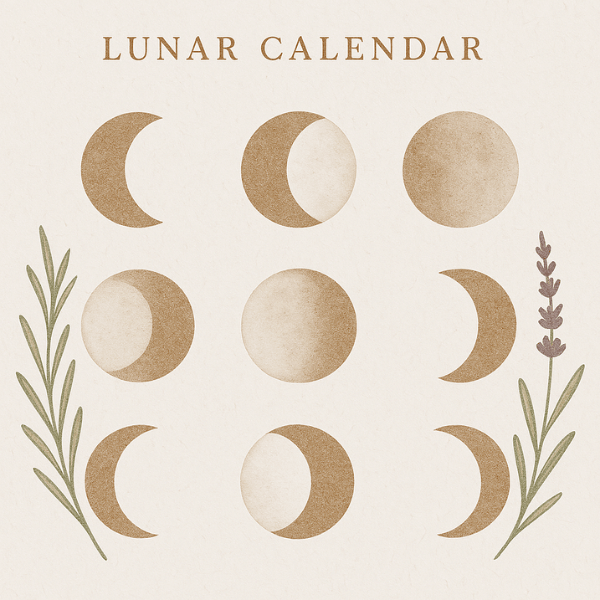Per dažnas plaukų plovimas: galvos odos pažeidimai ir kaip juos natūraliai ištaisyti
Per dažnas plovimas šampūnu gali pašalinti apsauginius galvos odos aliejus, todėl plaukai ir oda tampa pažeidžiami.
Visi mėgstame švarių, ką tik išplautų plaukų pojūtį. Bet ar gali būti per daug gero? Per dažnas plaukų plovimas, ypač naudojant stiprius šampūnus, gali atsigręžti prieš jus. Vietoj sveikos galvos odos ir žvilgančių plaukų, galite susidurti su sausumu, sudirgimu ar net riebesniais plaukais nei anksčiau. Šiame įraše nagrinėsime, kaip per dažnas plaukų plovimas veikia natūralią galvos odos pusiausvyrą, kokias problemas tai gali sukelti ir kaip rasti plaukų plovimo rutiną, kuri padėtų išlaikyti plaukus švarius ir sveikus.
Natūralūs aliejai ir galvos odos mikrobiomas: apsaugos pašalinimas
Jūsų galvos oda gamina natūralius aliejus (riebalus), kurie drėkina plaukus ir palaiko subalansuotą gerųjų bakterijų ir mielių, vadinamų galvos odos mikrobiomu, aplinką. Per dažnas plovimas sunaikina šiuos apsauginius aliejus ir gali sutrikdyti mikrobiomą. Kai ši pusiausvyra sutrikdoma, „gerųjų“ mikrobų sumažėja, o oportunistiniai gali peraugti į daugumą, todėl jūsų galvos oda tampa labiau linkusi į tokias problemas kaip uždegimas, dirginimas ir netgi plaukų slinkimas . Iš esmės, per dažnas plovimas gali susilpninti pirmąją galvos odos gynybos liniją.
Nuo sausumo iki pleiskanų: dirginimas, kurį sukelia per dažnas plovimas
Neturint pakankamai natūralaus aliejaus, galvos oda gali tapti sausa, įsitempusi ir niežtėti. Per dažnas plaukų plovimas dažnai sukelia dirginimą, pleiskanojimą ir net pleiskanas. Galite pastebėti, kad jūsų plaukai atrodo kaip šiaudai arba blankūs – taip yra todėl, kad šampūnai pašalina aliejus, kurie paprastai drėkina plaukus. Sutrikusi galvos oda (kuriame mažiau gerųjų mikrobų ir riebalų) linkusi parausti ir niežėti. Iš tiesų, nesubalansuota galvos odos mikrobioma yra susijusi su tokiomis problemomis kaip pleiskanos ir dirginimas. Taigi, jei kasdien muiluojate plaukus ir susiduriate su niežtinčia, pleiskanojančia galvos oda, kaltininkas gali būti per dažnas plaukų plovimas.
Atgavimo efektas: perteklinė naftos gamyba
Ironiška, bet per dažnas plaukų plovimas gali juos padaryti riebalingesnius. Kai plaunate plaukus šampūnu ir pašalinate riebalus, jūsų galvos oda reaguoja gamindama daugiau riebalų, kad kompensuotų tai. Jei kasdien šveičiate galvos odą, ji gali gauti žinutę, kad pradeda gamintis per daug riebalų. Rezultatas? Jūsų šaknys vėl labai greitai tampa riebaluotos, sukurdamos užburtą ratą. Daugelis žmonių mano, kad jų plaukai yra natūraliai riebūs, tačiau kai kuriais atvejais galvos oda reaguoja į nuolatinio plovimo sukeltą išsausėjimą. Rečiau plaudami plaukus, laikui bėgant galite pastebėti, kad jūsų galvos oda tampa mažiau riebi, nes atkuria pusiausvyrą.
Agresyvūs ingredientai, į kuriuos reikia atkreipti dėmesį (sulfatai, silikonai ir parabenai)
Svarbu ne tik plovimo dažnumas – svarbu ir tai, kuo plaunate plaukus. Daugelyje įprastų šampūnų yra ingredientų, kurie gali būti žalingi jūsų galvos odai. Štai keletas dažniausiai pasitaikančių kaltininkų. Įtraukus į savo kasdienybę šampūną be sulfatų ir parabenų, užtikrinamas švelnus valymas, kuris palaiko natūralią galvos odos drėgmės pusiausvyrą.
• Sulfatai:
Tai stiprios valymo priemonės (pvz., natrio laurilsulfatas), kurios sukuria gausias putas. Jos efektyviai pašalina nešvarumus ir riebalus, bet taip pat gali pašalinti esminius galvos odos aliejus, todėl plaukai tampa sausi ir galvos oda sudirgusi. Jei turite jautrius arba dažytus plaukus, sulfatai gali sustiprinti sausumą, niežulį ar plaukų spalvos blukimą.
• Silikonai:
Dažnai randami kondicionieriuose ir formavimo priemonėse, silikonai padengia plaukus, suteikdami jiems šilkinę tekstūrą. Trūkumas tas, kad kai kurie silikonai netirpsta vandenyje ir laikui bėgant gali kauptis ant galvos odos. Šios liekanos gali apsunkinti plaukus, padaryti juos riebius ar blankius, be to, jos gali neleisti drėgmei prasiskverbti į plaukų stiebą – jau nekalbant apie tai, kad norint jas pašalinti, plaukus reikės plauti dažniau arba naudoti valomąjį šampūną.
• Parabenai:
Šie konservantai pailgina produkto galiojimo laiką, tačiau kai kuriems žmonėms jie kelia susirūpinimą. Parabenai kartais gali dirginti odą, o kai kurie tyrimai rodo, kad ilgalaikio poveikio metu jie gali imituoti hormonus. Nors reguliuotojai mano, kad nedideliais kiekiais jie yra saugūs, daugelis žmonių, kurie teikia pirmenybę švelniai, „švariai“ plaukų priežiūrai, stengiasi vengti parabenų, kad būtų saugūs.
Šampūnų ir kondicionierių be šių agresyvių ingredientų pasirinkimas gali padėti išlaikyti natūralią galvos odos pusiausvyrą. Pavyzdžiui, šampūnuose be sulfatų naudojami švelnesni valikliai, kurie per daug nenuvalo odos riebalų. Panašiai, kondicionieriai be silikonų padeda išvengti per didelio riebalų kaupimosi, o formulės be parabenų sumažina galimų dirgiklių poveikį.
Kaip dažnai reikia plauti plaukus? (Priklauso nuo plaukų tipo)
Nėra vieno universalaus atsakymo, kaip dažnai reikėtų plauti plaukus. Idealus tvarkaraštis priklauso nuo jūsų plaukų tipo, galvos odos būklės ir gyvenimo būdo:
• Riebaluoti arba ploni, tiesūs plaukai
Gali tekti plauti plaukus dažniau. Kai kuriems žmonėms, kurių galvos oda labai riebi, tinka kasdienis plovimas. Kitiems pakanka plauti plaukus kas antrą dieną (arba kas 2–3 dienas), kad jie neliktų riebių. Ploni plaukai greitai pradeda riebaluotis, nes riebalai lengvai nuteka tiesiomis sruogomis, todėl jie gali greičiau atrodyti riebūs.
• Sausiems, šiurkštiems arba garbanotiems plaukams
Šio tipo plaukai gali ilgiau išbūti tarp plovimų. Garbanoti ir šiurkštūs plaukai paprastai būna sausesni, nes riebalai taip greitai nepasiskirsto garbanų vinimis. Dažnai pakanka plauti plaukus kartą ar du per savaitę. Tiesą sakant, vienas plaukų ekspertas pažymi, kad plonus/riebius plaukus galima plauti kas 2–3 dienas, sausesnius – kas 3–4 dienas, o labai garbanotus arba afrotekstūros plaukus – maždaug kartą per savaitę. Tarp plovimų galite nuplauti vandeniu arba išplauti plaukus kondicionieriumi (naudokite tik kondicionierių), jei reikia, kad atgaivintumėte plaukus.
• „Normalūs“ arba vidutinio ilgio plaukai
Jei jūsų galvos oda nėra labai riebi ar labai sausa, galite būti lankstesni. Daugeliui žmonių pakanka plauti plaukus maždaug 2–3 kartus per savaitę. Iš esmės, plaukite plaukus, kai jie atrodo suglebę, nešvarūs arba jūsų galvos oda riebi ar niežti – ir neplaukite, kai ji vis dar švari. Atkreipkite dėmesį į požymius, kuriuos duoda jūsų galvos oda.
Taip pat atsižvelkite į savo veiklą: jei daug prakaituojate po treniruočių ar darbo, jums gali tekti dažniau praustis. Kita vertus, sausu žiemos oru galite šiek tiek dažniau praustis, kad išvengtumėte papildomo sausumo. Svarbu rasti tinkamą pusiausvyrą.
Švelnios alternatyvos kasdieniam plovimui šampūnu
Jei bandote sumažinti plaukų plovimo dažnumą, yra būdų, kaip išlaikyti plaukų gaivumą nuolat neplaunant jų šampūnu:
• Bendras plovimas:
„Conditioner-only washing“ (liet. „plaukų plovimas tik kondicionieriumi“) trumpinys reiškia, kad vietoj šampūno reikia naudoti kondicionierių arba specialų valomąjį kondicionierių. Tai skamba keistai, jei esate įpratę prie putų, bet tai gali veikti! Daugumoje kondicionierių yra nedidelis kiekis švelnių paviršinio aktyvumo medžiagų, kurios gali pašalinti nešvarumus. „Conditioner-washing“ populiarus garbanotiems ir labai sausiems plaukams, nes jis valo nepašalindamas natūralių aliejų. Sruogos dažnai tampa lygesnės ir lengviau iššukuojamos, o galvos oda išlieka labiau sudrėkinta. (Tik atkreipkite dėmesį: jei plaunate plaukus tik kondicionieriumi, retkarčiais naudokite valomąjį šampūną, kad išvengtumėte likučių kaupimosi, nes vien kondicionierius nėra pakankamai stiprus, kad pašalintų didelius likučius.)
• Sausas šampūnas:
Tai iš esmės pakeičia taisykles dienomis, kai praleidžiate plaukų plovimą. Sausas šampūnas yra purškiklio arba miltelių pavidalu, kurį reikia užtepti ant plaukų šaknų; jis sugeria riebalų perteklių, todėl plaukai atrodo švaresni. Tai puikiai tinka norint ištempti plaukus viena ar dviem dienomis prieš kitą plovimą.
Įspėjimas? Sausas šampūnas tik sugeria riebalus ir suteikia apimties – jis iš tikrųjų nevalo galvos odos. Per didelis jo naudojimas gali sukelti produkto kaupimąsi, užkimšti plaukų folikulus ir sudirginti galvos odą, jei pasikliausite juo ir reguliariai neplausite plaukų.
Dermatologai siūlo sausą šampūną naudoti saikingai (pvz., vieną ar du kartus tarp tikrų plovimų) ir vis tiek periodiškai plauti plaukus, kad jie iš tikrųjų būtų švarūs. Galvokite apie tai kaip apie greitą sprendimą – ne apie nuolatinį vandens ir šampūno pakaitalą.
• Galvos odai draugiški produktai:
Kai plaunate galvą, rinkitės švelnius, galvos odai draugiškus šampūnus. Ieškokite valiklių be sulfatų ir natūralių ingredientų. Kai kuriuose šampūnuose naudojamos švelnios paviršinio aktyvumo medžiagos (pvz., kokogliukozidas arba decilgliukozidas), kurios valo neperdžiovindamos odos. Kiti šampūnai turi raminamųjų botaninių ingredientų (arbatmedžio, alavijų, ramunėlių), kurie nuramina ir maitina galvos odą. Taip pat galite rasti galvos odos šveitiklių ar tonikų, kurie padeda pašalinti susikaupusias dulkes ir subalansuoti galvos odos riebalus tarp plovimų. Svarbiausia naudoti produktus, kurie efektyviai valo, tačiau nepažeidžia jūsų galvos odos drėgmės ir pH – kad per dažnas plovimas nesugadintų visų privalumų.
Švelnios priemonės, tokios kaip plaukų aliejai, gali atkurti drėgmę per daug išplautuose plaukuose, išlaikant juos minkštus ir sveikus.
Be prausimo, nepamirškite atkurti drėgmės. Jei per daug prausėtės, į savo odos priežiūros rutiną įtraukite lengvo poveikio galvos odos aliejų ar serumą arba retkarčiais naudokite kondicionierių, kad atkurtumėte drėgmę.
Idėja – subalansuoti valymą ir kondicionavimą. Pavyzdžiui, po trinkimo šampūnu galite patepti drėkinamuoju galvos odos toniku arba esencija – dabar netgi yra galvos odos serumų, panašiai kaip veido serumai – kad atkurtumėte maistines medžiagas. Užtikrindami, kad galvos oda nebūtų nuplikyta, galite nutraukti dehidratacijos ciklą. Kai galvos oda yra pamaitinta, ji ne taip lengvai pleiskanosi ir nepradeda gamintis per daug riebalų.
Patarimai subalansuotai plaukų plovimo rutinai
Rasti tobulą plaukų tipą gali prireikti šiek tiek bandymų ir klaidų. Štai keletas praktinių patarimų, kurie padės jums rasti pusiausvyrą:
• Įsiklausykite į savo galvos odą ir plaukus: jei jūsų galvos oda jaučiasi tempiama arba pleiskanoja, gali būti, kad per daug plaunate plaukus (arba naudojate stiprias priemones). Jei jūsų šaknys labai riebaluojasi arba galvą niežti, gali prireikti plaukų plovimo arba lengvesnio kondicionieriaus. Kiekvieno žmogaus ideali rutina yra skirtinga – koreguokite ją pagal tai, kaip reaguoja jūsų galvos oda ir plaukai.
• Nenaudokite labai karšto vandens: karštas vanduo gali greičiau pašalinti natūralius aliejus ir išsausinti plaukus bei galvos odą. Plaukite drungnu vandeniu ir galbūt galiausiai perskalaukite vėsesniu vandeniu, kad geriau užsandarintumėte plaukų odeles. Taip išsaugosite daugiau drėgmės.
• Šampūną skirkite šaknims: iš tikrųjų reikia valyti galvos odą, o ne plaukų galiukus. Įmasažuokite šampūną į galvos odą ir šaknis (kur kaupiasi riebalai ir nešvarumai), nesijaudinkite dėl plaukų galiukų šveitimo – tekančios putos juos išvalys. Taip išvengsite per didelio sausų plaukų galiukų iššukavimo.
• Kondicionuokite plaukų galiukus (o galbūt ir galvos odą): Nepraleiskite kondicionieriaus dėl to, kad bijote riebaluotis. Kiekvieną kartą plaunant plaukus, tepkite kondicionierių nuo plaukų vidurio iki galiukų, kad sruogos būtų sudrėkintos ir apsaugotos. Jei jūsų galvos oda labai sausa, pabandykite po plovimo naudoti galvos odos kondicionierių arba kelis lašus plaukų aliejaus. Gerai kondicionuota galvos oda mažiau sudirgsta ar panikuoja dėl per didelio riebalų išsiskyrimo.
• Venkite putų gaudyklės: nesutapatinkite gausių putų su geresniu plovimu. Šampūnuose , kurie sukuria daug putų, dažnai yra stiprių sulfatų – jie sukelia burbuliukus, bet taip pat gali pašalinti natūralius galvos odos aliejus. Tiesą sakant, gausios putos nebūtinos geram plovimui. Švelnesnės, mažai putojančios formulės gali išvalyti taip pat gerai, nepalikdamos plaukų girgždančių sausumo.
• Retkarčiais naudokite valomąsias priemones: jei naudojate daug formavimo priemonių arba pastebite daug apnašų, galbūt kartą per mėnesį giliai išvalykite plaukus valomuoju šampūnu arba galvos odos šveitikliu. Tai „atstato“ jūsų galvos odą ir pašalina visas liekanas, kurių nepalieka įprastas šampūnas. Tik nepersistenkite su valomosiomis priemonėmis – jos stiprios, todėl naudokite jas periodiškai detoksikacijai, o ne kiekvienam plovimui.
• Palaipsniui ilginkite laiką tarp plovimų: bandote atsikratyti kasdienio plaukų plovimo įpročio? Po truputį ilginkite plovimo intervalus. Vietoj kasdienio plovimo pereikite prie kas antrą dieną, o poilsio dienomis naudokite sausą šampūną arba sušukuokite plaukus kas trečią dieną. Po poros savaičių pabandykite plauti plaukus kas trečią dieną. Leiskite galvos odai prisitaikyti – ji gamins mažiau riebalų, kai nebus nuolat plaunama. Tuo tarpu riebiausiomis dienomis galite nešioti kasas, kuodelius ar kepuraites. Būkite kantrūs – jūsų galvos odos riebalų gamyba normalizuosis.
Laikydamiesi šių patarimų, padėsite savo galvos odai išlikti geros pusiausvyros zonoje – nei per daug riebios, nei per daug sausos. Jūsų plaukai jums padėkos geresne tekstūra, natūralesniu blizgesiu ir rečiau pasitaikys blogų plaukų dienų.
Premija: švelnus kelias – „Klein's Organic Products“
Sveikų plaukų priežiūra – tai pusiausvyra – ir būtent tokia yra „Klein's Organic“ produktų filosofija. Jų formulės orientuotos į švelnų valymą ir natūralius ingredientus, kurie palaiko galvos odos sveikatą. Pavyzdžiui, vietoj sulfatų ar stiprių sintetinių priedų šalinimo „Klein's Organic“ šampūnuose naudojami švelnūs, ekologiški valikliai ir maitinamieji botaniniai ingredientai, kurie valo nepažeisdami galvos odos drėgmės ar mikrobiomo.
Daugelis žmonių, kurie pereina prie švelnesnių, ekologiškų produktų, pastebi, kad jų galvos oda tampa ramesnė, o plaukai ilgiau išlieka gaivūs, nes nėra agresyviai šeriami. Tai subtilus pokytis, kuris laikui bėgant gali turėti didelės įtakos. Jei norite susikurti švelnesnę plaukų priežiūros rutiną, produktų, atitinkančių galvos odos sveikatą, pavyzdžiui, „Klein's Organic“, naudojimas gali būti puikus žingsnis link laimingesnės galvos odos ir sveikesnių plaukų.




Palikti komentarą
Ši svetainė apsaugota „hCaptcha“, taip pat taikoma „hCaptcha“ privatumo politika ir paslaugos teikimo sąlygos.